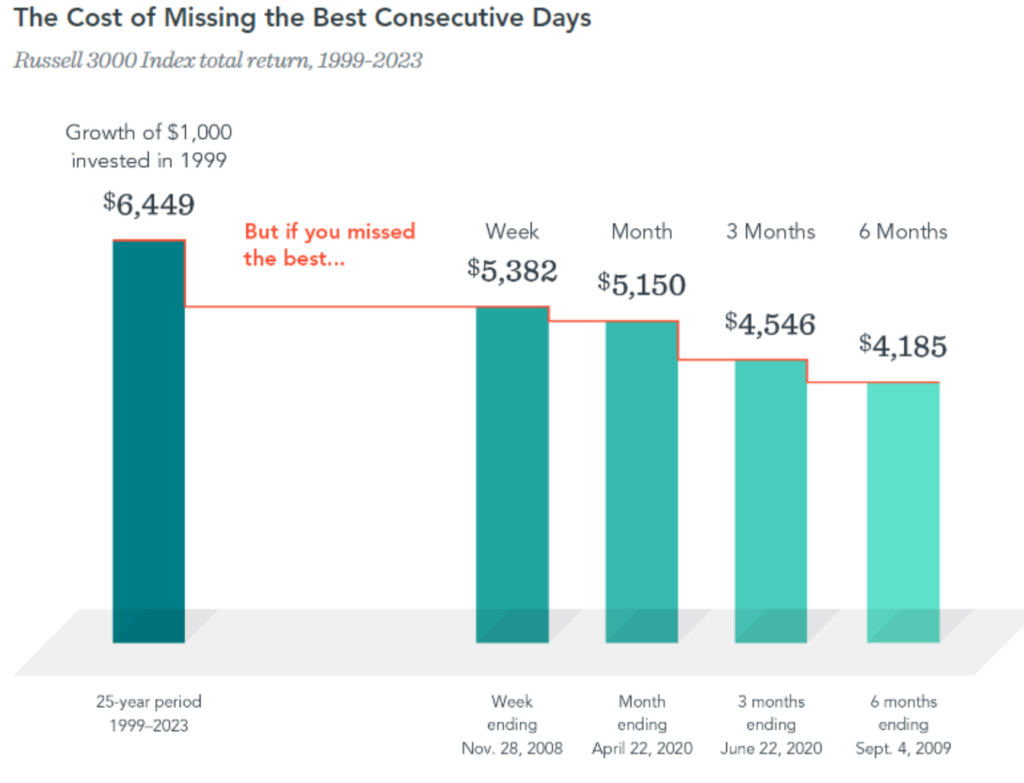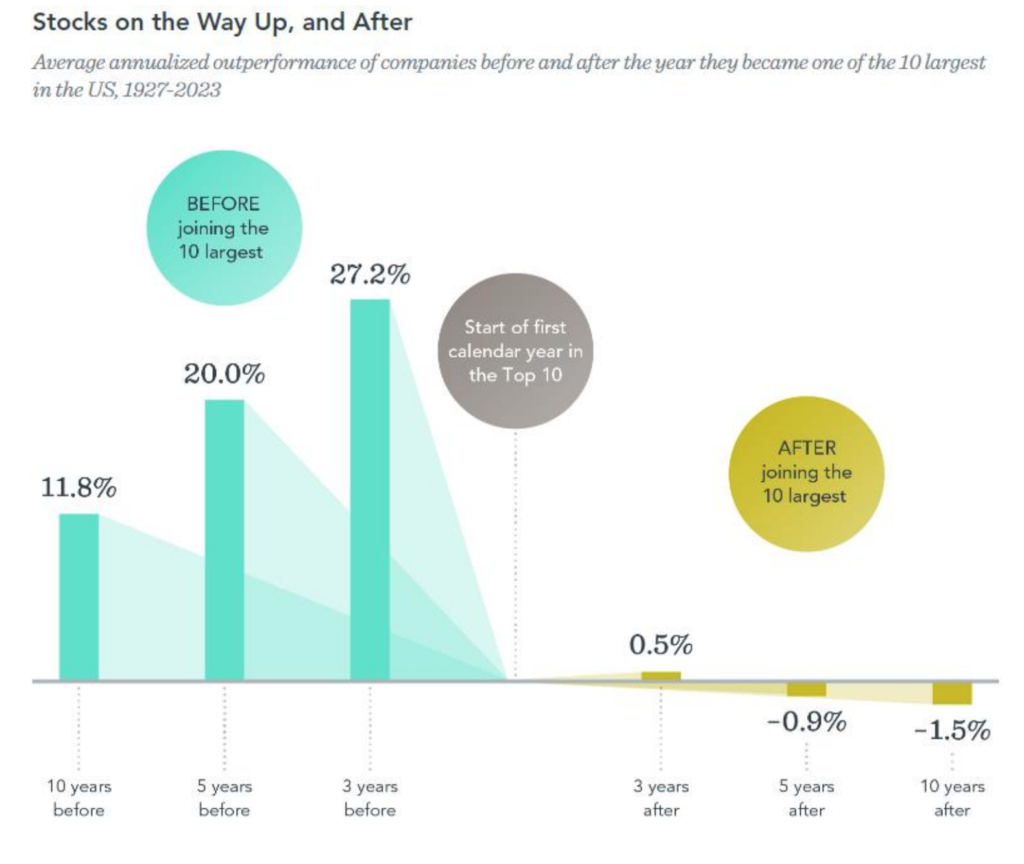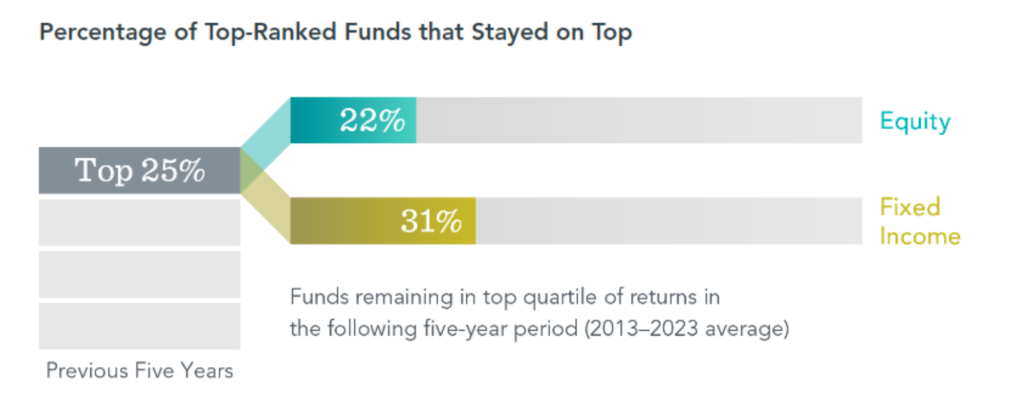Many people start out managing their own investments. But as their earnings and assets grow, their financial needs and challenges become more complex—and continuing to go it alone could prove costly in terms of investing miscues. Consider three common mistakes that can reduce returns and increase anxiety:
Trying to Time the Market
Investors may be tempted to cash out of the stock market to avoid a predicted downturn. But forecasting the market’s direction in order to time when to buy and sell is a guessing game. Missing only a brief period of strong market performance can drastically affect your lifetime wealth.
For example, the chart below shows a hypothetical investment in the Russell 3000 Index, a broad US stock market benchmark. Over the entire 25-year period ending December 31, 2023, a $1,000 investment in 1999 turned into $6,449. But what if you pulled your cash out at the wrong time? Missing the best week, month, three months, or six months would have significantly reduced the growth of your investment.
Rather than trying to predict when stocks will rise and fall, investors can hold a globally diversified portfolio and, by staying invested, be better positioned to capture returns whenever and wherever they occur.

Rather than trying to predict when stocks will rise and fall, investors can hold a globally diversified portfolio and, by staying invested, be better positioned to capture returns whenever and wherever they occur.
Focusing on the Headlines
Investors may become enamored with popular stocks based on recent performance or media attention and overconcentrate their portfolio holdings in these companies. One example is the rise of the large US technology companies known as the Magnificent 7 (Alphabet, Amazon, Apple, Meta Platforms, Microsoft, NVIDIA, and Tesla). But the chart below shows that many fast-growing stocks have stopped outperforming after becoming one of the 10 largest stocks in the United States.
On average, companies that outperformed the market on the way up failed to outperform in the years after making the top 10 list. The lesson? Rather than load up on a handful of stocks that have dominated the market, you can own many stocks through mutual funds or ETFs. Diversifying across industries and global markets can help reduce overall risk and position investors to potentially capture the returns of future top-performing companies.

The lesson? Rather than load up on a handful of stocks that have dominated the market, you can own many stocks through mutual funds or ETFs. Diversifying across industries and global markets can help reduce overall risk and position investors to potentially capture the returns of future top-performing companies.
Chasing Past Performance
You might be inclined to select investments based on past returns, expecting top-ranked funds to continue delivering the best performance. But can they maintain that outperformance? Research shows that most funds ranked in the top 25% based on five-year returns didn’t remain in the top 25% in the next five years.
In fact, only about one in five equity funds stayed in the top-performing group, and only about a third of fixed income funds did. The lesson? A fund’s past performance offers limited insight into its future returns.

Avoiding these mistakes can improve the odds of reaching your long-term investment goals. That’s why we design a diversified, research-backed investment strategy based on your long-term goals and comfort level with risk.
John, a New Hope, Pennsylvania native, is the Founder and CEO of Rockwood Wealth Management. A former nuclear engineer, he is committed to the development and growth of conflict-free comprehensive financial planning and investment management. John values a client-centric practice and unwavering integrity in all of our endeavors as stewards of our clients' best interests.

